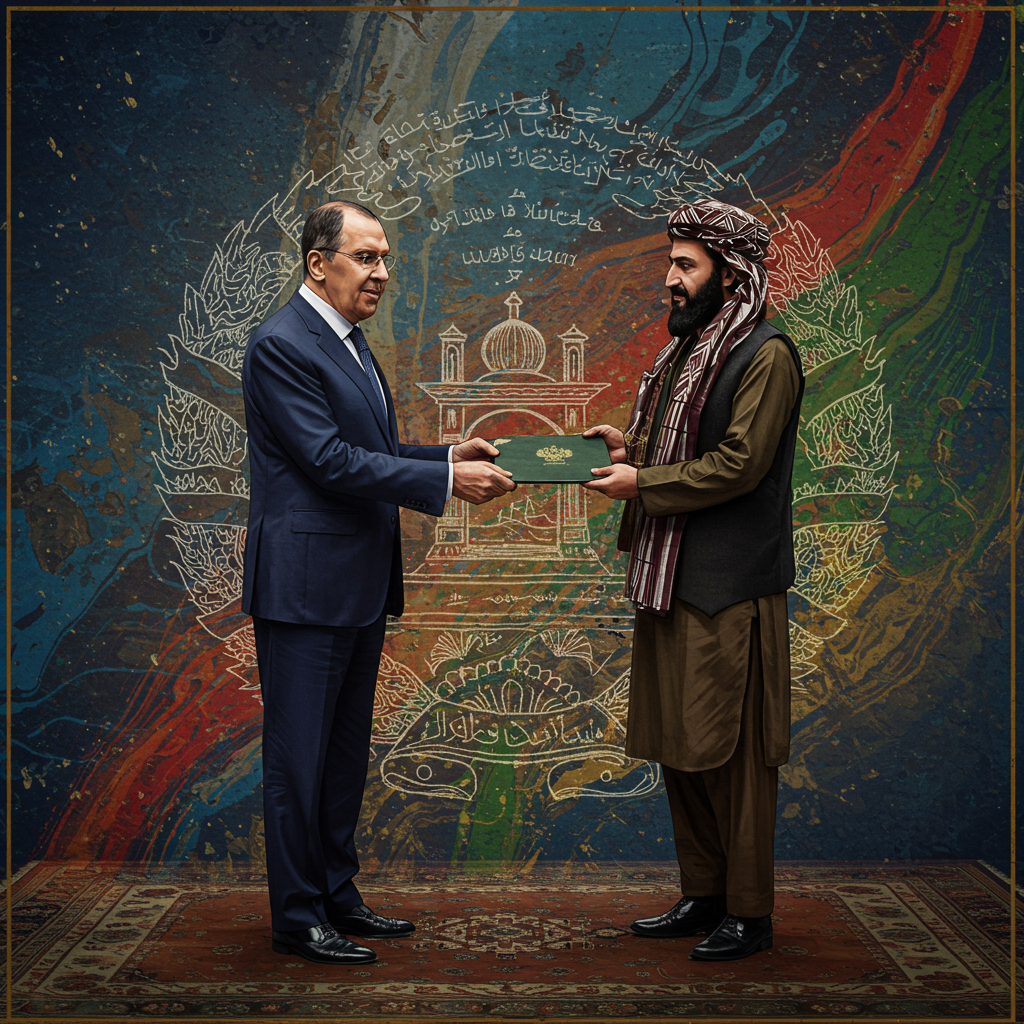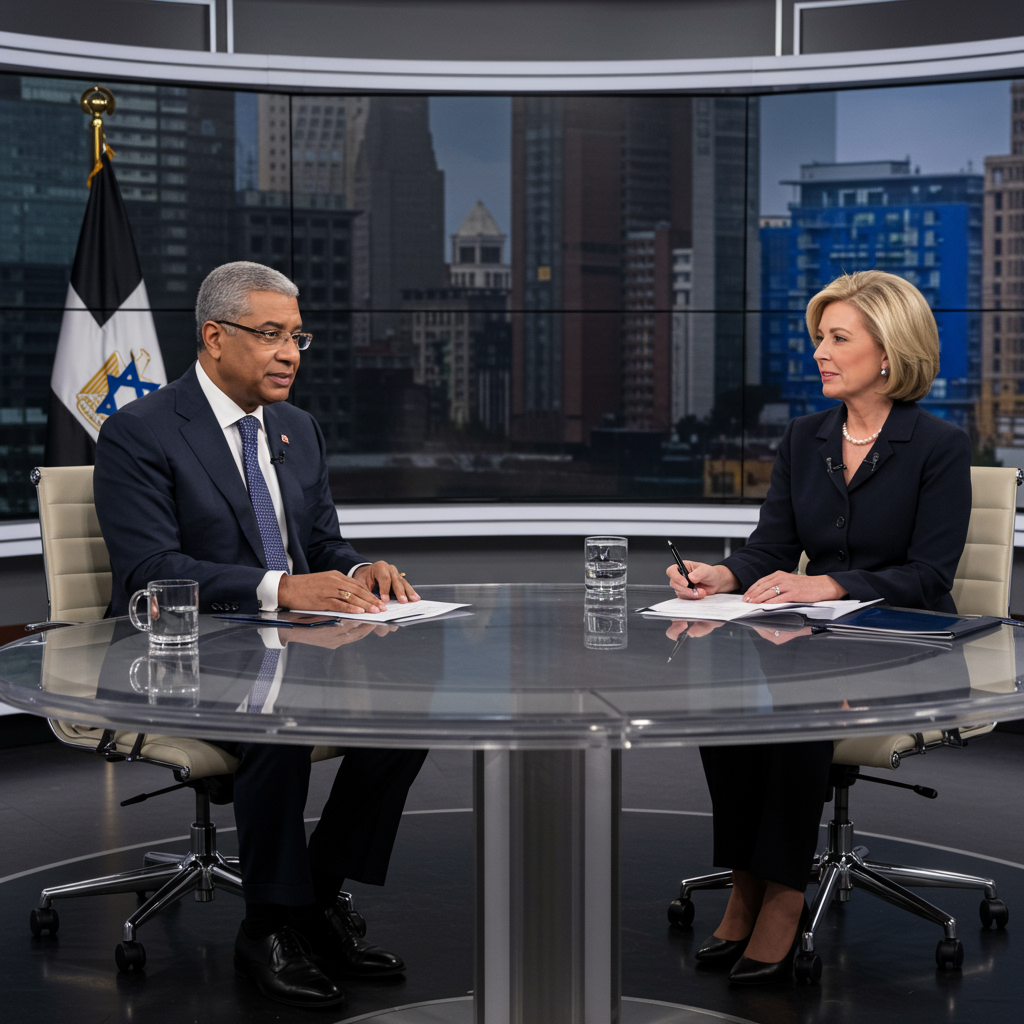In a significant diplomatic shift, russia has become the first nation globally to grant official recognition to the taliban government in Afghanistan. This landmark decision marks a pivotal moment for the administration that seized power in Kabul nearly four years ago following the withdrawal of United States forces. Announced by the Russian Ministry of Foreign Affairs, the move involves Moscow formally accepting the credentials of the new Afghan ambassador, signaling a decisive step towards normalizing relations. This development is set to reshape Afghanistan’s international standing and influence regional dynamics as other countries closely monitor Moscow’s lead.
russia’s Bold Move: Formal Recognition Explained
The formal recognition occurred on July 3, 2025, when Russia received credentials from Afghanistan’s newly appointed Ambassador to Moscow, Gul Hassan Hassan. According to the Russian Foreign Ministry, this act aims to provide substantial momentum for the development of productive bilateral cooperation across various sectors. These areas include crucial commercial and economic links, potential collaborations in energy, transportation, agriculture, and infrastructure, and continued assistance in combating terrorism and drug trafficking.
Afghanistan’s Foreign Minister, Amir Khan Muttaqi, warmly welcomed Russia’s decision. He described it as a “historic step” and a “brave decision” in a video shared on X. Muttaqi expressed optimism that Russia’s action would set a “good example for other countries” and pave the way for a “new phase of positive relations, mutual respect, and constructive engagement.” He emphasized that Russia was “ahead of everyone” in initiating this process of formal recognition.
Why Moscow Shifted Towards Formal Ties
Russia’s decision is driven by a complex mix of strategic interests, including regional influence, economic opportunities, and shared security concerns. Moscow views the Taliban authorities as the current reality in Afghanistan and believes pragmatic engagement is necessary for stability. Unlike many Western nations that closed embassies after the 2021 takeover, Russia maintained a diplomatic presence in Kabul, signaling its intent to deal with the ruling power.
A key motivation for Russia is counter-terrorism. Both Russia and the Taliban face threats from groups like Islamic State Khorasan Province (ISKP or ISIS-K), which has carried out deadly attacks in both countries. Russian President Vladimir Putin referred to the Taliban as “allies in the fight against terrorism” in July 2024, specifically in countering ISKP. This shared security concern has become a significant factor in improving relations.
Economic interests also play a vital role. Russia sees Afghanistan as a potential economic partner. Taliban delegations have attended Russia’s major economic forums in Saint Petersburg, seeking investment and trade. Moscow has already signed economic agreements, including energy deals, and has expressed plans to utilize Afghanistan as a transit route for gas deliveries to Southeast Asia. Russia was notably the first country to open a business representative office in Kabul after the 2021 takeover.
The Path to Recognition: A Gradual Process
The formal recognition by Russia follows a series of deliberate steps taken by Moscow over several years to normalize relations with the Taliban. After initially calling the US withdrawal from Afghanistan a “failure” in 2021, Russia began engaging with the group. This engagement progressed through various stages, demonstrating a shift from antagonist to pragmatic partner.
One significant precursor to formal recognition was Russia’s Supreme Court lifting the “terrorist” designation for the Taliban group in April 2025. This removal, which reversed a 2003 listing due to the Taliban’s support for North Caucasus separatists, cleared a legal hurdle for closer ties. Russian Foreign Minister Sergey Lavrov had advocated for a “pragmatic, not ideologised policy” towards the group, acknowledging that the “new authorities in Kabul are a reality.”
High-level diplomatic meetings also became increasingly frequent. Afghanistan’s top diplomat met with Sergey Lavrov in Moscow in October 2024. These interactions, coupled with the acceptance of an ambassador, built towards the official recognition announced this week. Russia’s approach reflects a strategic adaptation to the post-2021 landscape, prioritizing its geopolitical and economic interests in the region.
International Context and Criticisms
Russia’s decision stands in stark contrast to the stance of most of the international community. No world body currently officially recognizes the Taliban administration. The United Nations, for instance, refers to them simply as the “Taliban de facto authorities.” Many countries, including the United States, have maintained distance due to the Taliban’s human rights record, particularly concerning women and girls.
Since retaking power, the Taliban have imposed severe restrictions based on their strict interpretation of Sharia law. These include barring girls over 12 from education, preventing women from holding many jobs and accessing public spaces without a male chaperone, and enforcing strict dress codes. International organizations and critics have condemned these measures, with the UN describing the restrictions on women as potentially amounting to “gender apartheid.” The Taliban’s rule has also seen reports of public floggings and harsh treatment of former government officials.
The US has frozen billions of Afghanistan’s central bank assets and imposed sanctions on senior Taliban leaders, contributing to the country’s banking sector being largely cut off from the international financial system. Russia’s recognition could potentially ease some of this international isolation, although it does not unlock access to frozen assets or lift UN sanctions.
Critics of Russia’s move voiced strong opposition. Former Afghan politician Fawzia Koofi condemned the recognition as “outrageous,” arguing it legitimizes an “authoritarian, anti-women” regime. She warned that such steps could endanger global security by legitimizing impunity. The Afghan Women’s Political Participation Network highlighted the historical context of Russia’s involvement in Afghanistan and viewed the current support for the Taliban as a continuation of “destructive strategies.”
Historical Echoes and Regional Competition
The relationship between Russia and the Taliban carries significant historical weight. The group emerged partly from Mujahideen fighters who battled the Soviet Union in the 1980s, a conflict that proved costly for Moscow and contributed to the eventual collapse of the USSR. Russia initially blacklisted the Taliban as a terrorist organization in 2003.
However, the return of the Taliban in 2021 forced Russia and other countries in the region to reassess their strategies. As the US withdrew, a vacuum emerged, and regional powers began competing for influence. While most countries have withheld formal recognition, some nations, including China, the United Arab Emirates, Uzbekistan, and Pakistan, have engaged diplomatically and appointed ambassadors to Kabul. China, notably, welcomed Russia’s decision, stating that Afghanistan should not be excluded from the international community and highlighting its own uninterrupted diplomatic ties with the country.
Russia’s position as the first country to grant formal recognition places it strategically in this regional competition. It signals Moscow’s intent to be a key player in Afghanistan’s future and underscores its pragmatic approach to dealing with the current reality on the ground, despite historical animosities and the Taliban’s controversial rule.
Frequently Asked Questions
Why did Russia become the first country to officially recognize the Taliban government in Afghanistan?
Russia’s decision stems from a combination of pragmatic, security, and economic factors. Moscow sees the Taliban as the established power in Afghanistan and believes engagement is necessary for regional stability. Key motivations include shared concerns over countering terrorism, particularly groups like ISKP, seeking economic opportunities like energy deals and transit routes, and enhancing Russia’s regional influence following the withdrawal of Western forces. Russia had already removed the Taliban from its terrorist list and maintained an embassy in Kabul, signaling a shift towards normalizing ties based on perceived national interests.
What steps did Russia take leading up to the formal recognition of the Taliban?
Russia’s recognition was the culmination of a gradual process since the Taliban took power in August 2021. Initial steps included maintaining its embassy in Kabul and engaging in diplomatic discussions with Taliban officials. More concrete actions included Russia signing an economic agreement with the Taliban in 2022 and allowing Taliban delegations to attend major Russian economic forums. A critical step was Russia’s Supreme Court lifting the Taliban’s “terrorist” designation in April 2025, removing a key legal obstacle. Finally, accepting the credentials of the new Afghan ambassador formalized this shift in policy.
How does Russia’s recognition impact the Taliban’s international standing and the situation in Afghanistan?
Russia’s recognition is a significant diplomatic win for the Taliban, marking a crack in their international isolation. While it doesn’t immediately lift UN sanctions or unfreeze assets, it provides a degree of legitimacy that the group has actively sought. It could potentially encourage other countries to follow suit, although most nations remain hesitant due to the Taliban’s human rights record, especially regarding women and girls. For Afghanistan, it might open limited avenues for bilateral cooperation with Russia, particularly on security and economic fronts, but the country largely remains cut off from the international financial system and awaits broader recognition.
Russia’s formal recognition of the Taliban represents a calculated geopolitical maneuver. It prioritizes perceived national interests – security, economic opportunity, and regional standing – over concerns shared by many other nations regarding the Taliban’s governance and human rights record. This move solidifies Russia’s position as a key player navigating the complex landscape of post-2021 Afghanistan and potentially sets a precedent that could influence future international engagement with the ruling authorities in Kabul.




